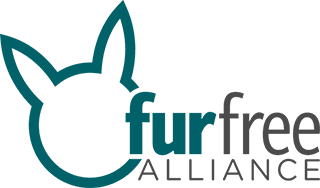
Greek Ministry of Culture: Fur is not Cultural Heritage
GREECE, 18 MAY 2018 – The Hellenic Ministry of Culture and Sports has rejected a proposal of the Greek fur industry to include fur production in Greece’s National Inventory of Intangible Cultural Heritage.
The submission by the Hellenic Fur Federation was dismissed unanimously by the ministry’s Directorate of Modern Cultural Assets and Intangible Cultural Heritage, stating that fur production is not in line with UNESCO’s sustainable development goals and has an exclusively commercial objective:
“This activity, which is based on the killing of animals exclusively for the exploitation of their fur, is not compatible with sustainable development, which is a necessary requirement for a practice to be considered within the scope of the Convention for the Safeguarding of Intangible Cultural Heritage UNESCO (2003).”
In 2016, the Hellenic Fur Federation submitted the proposal to include fur production in the National Inventory of Intangible Cultural Heritage with a view to applying for UNESCO “intangible heritage” status, which, if approved, would result in the unjust promotion and protection of fur production as a heritage craft.
The dismissal follows another rejection of a cunning fur lobby strategy that was introduced recently in Kastoria – the center of the Greek fur industry – a school program entitled “Fur: Environment and Culture”. The program, that was introduced by the Regional Directorate of Primary Education in Kastoria, was quickly inactivated by the Greek Ministry of Education.
Despite the rejection of the industry’s claim that fur production is cultural heritage, teachers and MP’s in Kastoria continue to blatantly and indefensibly present the fur industry as a cultural asset and an example of ‘sustainable development’. Furthermore, the Hellenic Fur Federation wrongfully presents the local fur industry as an invaluable economical sector for the region. On the contrary, the Russian demand for Kastorian fur, which is the largest market for Kastorian fur exporters, has plummeted in recent years, causing high unemployment numbers. The fact is that the fur industry is an economically, highly unstable industry that is banned in more and more countries worldwide.




